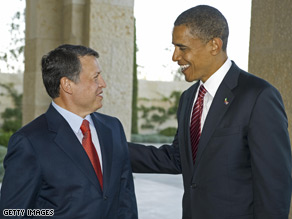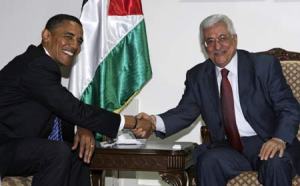Ce n’est pas un islamo-gauchiste marocain accro à Al Jazira, Tariq Ramadan et Rachid Nini qui écrit ça mais un colonel de l’US Marine Corps et du Defense Intelligence Agency, le bloggeur Pat Lang de Sic Semper Tyrannis, qui réagit à une chronique du New York Times:
It is increasingly clear that David Brooks is not an editorial columnist. He is a propagandist for the hard right in this country and in Israel. « Implacable enemies? » « ..an armed assault on the democratic government of Lebanon? » Brooks is not a stupid man. He knows very well that the various Lebanese factions are engaged in a struggle over re-alignment of power in the government that has been in progress for most of a year. He knows that Hizbullah, Amal, the Aounis and others all hold seats in the parliament and are for that reason, in fact, part of the « government of Lebanon » that he writes of just as members of Congress are part of the government here. He knows exceedingly well that todays’s « terrorists » are often tomorrow’s rulers, (Kenyatta, Begin, Shamir, etc) He knows very well that his factional allies in the Bush Administration and in Israel favor the Siniora Cabinet in Beirut because they are supremely biddable and useful tools. Siniora is so much an instrument of US and Saudi policy that he should be provided a federal judgeship to retire to when when he is finally ejected from office. (Maybe Guam would be a good place. That was suggested for Thieu long ago)
« Implacable terrorist. » I suppose that is what the British called Menachem Begin and Begin’s hero Michael Collins before they became heads of government.
La ministre israëlienne des affaires étrangères a apporté son soutien au gouvernement Siniora:
Vice Prime Minister and Minister of Foreign Affairs Tzipi Livni said that « Lebanon exemplifies a country where the moderates are growing weaker as Iran attempts to gain control with the aid of an armed militia, and to destabilize the region at the same time. Israel expects all countries of the world who share its values to demonstrate decisiveness in their opposition to extremism ».
La presse israëlienne fait la comparaison entre Fouad Siniora et Abou Mazen, qui n’est sans doute pas flatteuse pour le premier:
Throughout the week it was possible to hear the wails of the losers, among them Prime Minister Fuad Siniora who, in lacerative rhetoric, described Hezbollah as « insurrectionists, » exactly the same word Palestinian President Mahmoud Abbas uses to describe Hamas. « They have stabbed democracy in the back »
Car rappelez-vous la révélation – tardive certes – de Vanity Fair, preuves à l’appui:
After failing to anticipate Hamas’s victory over Fatah in the 2006 Palestinian election, the White House cooked up yet another scandalously covert and self-defeating Middle East debacle: part Iran-contra, part Bay of Pigs. With confidential documents, corroborated by outraged former and current U.S. officials, David Rose reveals how President Bush, Condoleezza Rice, and Deputy National-Security Adviser Elliott Abrams backed an armed force under Fatah strongman Muhammad Dahlan, touching off a bloody civil war in Gaza and leaving Hamas stronger than ever.
Ce stratagème étatsunien, rappelant la Baie des Cochons, a choqué même un néo-con pro-israëlien (redondance!) de l’administration Bush, David Wurmser, qui a démissionné pour cette raison:
Within the Bush administration, the Palestinian policy set off a furious debate. One of its critics is David Wurmser, the avowed neoconservative, who resigned as Vice President Dick Cheney’s chief Middle East adviser in July 2007, a month after the Gaza coup.
Wurmser accuses the Bush administration of “engaging in a dirty war in an effort to provide a corrupt dictatorship [led by Abbas] with victory.” He believes that Hamas had no intention of taking Gaza until Fatah forced its hand. “It looks to me that what happened wasn’t so much a coup by Hamas but an attempted coup by Fatah that was pre-empted before it could happen,” Wurmser says.
The botched plan has rendered the dream of Middle East peace more remote than ever, but what really galls neocons such as Wurmser is the hypocrisy it exposed. “There is a stunning disconnect between the president’s call for Middle East democracy and this policy,” he says. “It directly contradicts it.”
Mohamed Dahlan, l’homme fort du régime d’Abou Mazen – fidèle allié d’Israël et des Etats-Unis – ne nie pas farouchement l’imputation d’être proche des services étatsuniens:
Dahlan worked closely with the F.B.I. and the C.I.A., and he developed a warm relationship with Director of Central Intelligence George Tenet, a Clinton appointee who stayed on under Bush until July 2004. “He’s simply a great and fair man,” Dahlan says. “I’m still in touch with him from time to time.”
Soyons honnêtes tout de même: si Dahlan n’est pas insensible aux souhaits des services étatsuniens, le président palestinien Abou Mazen ne l’est guère plus:
Washington reacted with dismay when Abbas began holding talks with Hamas in the hope of establishing a “unity government.” On October 4, 2006, Rice traveled to Ramallah to see Abbas. They met at the Muqata, the new presidential headquarters that rose from the ruins of Arafat’s compound, which Israel had destroyed in 2002.
America’s leverage in Palestinian affairs was much stronger than it had been in Arafat’s time. Abbas had never had a strong, independent base, and he desperately needed to restore the flow of foreign aid—and, with it, his power of patronage. He also knew that he could not stand up to Hamas without Washington’s help.
At their joint press conference, Rice smiled as she expressed her nation’s “great admiration” for Abbas’s leadership. Behind closed doors, however, Rice’s tone was sharper, say officials who witnessed their meeting. Isolating Hamas just wasn’t working, she reportedly told Abbas, and America expected him to dissolve the Haniyeh government as soon as possible and hold fresh elections.
Abbas, one official says, agreed to take action within two weeks. It happened to be Ramadan, the month when Muslims fast during daylight hours. With dusk approaching, Abbas asked Rice to join him for iftar—a snack to break the fast.
Afterward, according to the official, Rice underlined her position: “So we’re agreed? You’ll dissolve the government within two weeks?”
“Maybe not two weeks. Give me a month. Let’s wait until after the Eid,” he said, referring to the three-day celebration that marks the end of Ramadan. (Abbas’s spokesman said via e-mail: “According to our records, this is incorrect.”)
Et l’alignement d’Abou Mazen n’est pas que platonique, comme le révèle dans un autre article la journaliste Helena Cobban:
Throughout late 2006 and 2007, the Hamas leaders had to deal with the growing military challenge that Fateh was posing, with Washington’s encouragement, to their strongholds in Gaza. In April 2007 a Jordanian paper leaked details of a plan whereby hundreds of U.S.-armed and U.S.-trained Fateh units who had been sent to Gaza under the guise of “upgrading the Palestinian security forces” would seize control. Hamas pre-empted the plan’s implementation. In five days of brutal fighting, Hamas fighters routed the newly deployed Fateh forces from the Strip. Many Fateh fighters defected to Hamas. Some were killed. The Israelis finally allowed the battered Fateh remnants to transit Israel and regroup in the West Bank. In Ramallah a badly piqued President Abbas announced the dissolution of the Hamas-led government and its replacement with a “technocratic” government led by long-time U.S. ally Fayyad.
La Maison Blanche n’était pas en mesure de nier les allégations spécifiques contenues dans le reportage de David Rose publié par Vanity Fair, se contentant de dénégations générales et abstraites.
Et le Liban dans tout ça? Figurez-vous que le reporter vétéran Seymour Hersh, du New Yorker, avait lui révélé en 2007 déjà le soutien officiel et clandestin de l’administration Bush pour le gouvernement Siniora:
The focus of the U.S.-Saudi relationship, after Iran, is Lebanon, where the Saudis have been deeply involved in efforts by the Administration to support the Lebanese government. Prime Minister Fouad Siniora is struggling to stay in power against a persistent opposition led by Hezbollah, the Shiite organization, and its leader, Sheikh Hassan Nasrallah. (…)
The Bush Administration has publicly pledged the Siniora government a billion dollars in aid since last summer. A donors’ conference in Paris, in January, which the U.S. helped organize, yielded pledges of almost eight billion more, including a promise of more than a billion from the Saudis. The American pledge includes more than two hundred million dollars in military aid, and forty million dollars for internal security.
The United States has also given clandestine support to the Siniora government, according to the former senior intelligence official and the U.S. government consultant. “We are in a program to enhance the Sunni capability to resist Shiite influence, and we’re spreading the money around as much as we can,” the former senior intelligence official said. The problem was that such money “always gets in more pockets than you think it will,” he said. “In this process, we’re financing a lot of bad guys with some serious potential unintended consequences. We don’t have the ability to determine and get pay vouchers signed by the people we like and avoid the people we don’t like. It’s a very high-risk venture.”
American, European, and Arab officials I spoke to told me that the Siniora government and its allies had allowed some aid to end up in the hands of emerging Sunni radical groups in northern Lebanon, the Bekaa Valley, and around Palestinian refugee camps in the south. These groups, though small, are seen as a buffer to Hezbollah; at the same time, their ideological ties are with Al Qaeda. (…)
Alastair Crooke, who spent nearly thirty years in MI6, the British intelligence service, and now works for Conflicts Forum, a think tank in Beirut, told me, “The Lebanese government is opening space for these people to come in. It could be very dangerous.” Crooke said that one Sunni extremist group, Fatah al-Islam, had splintered from its pro-Syrian parent group, Fatah al-Intifada, in the Nahr al-Bared refugee camp, in northern Lebanon. Its membership at the time was less than two hundred. “I was told that within twenty-four hours they were being offered weapons and money by people presenting themselves as representatives of the Lebanese government’s interests—presumably to take on Hezbollah,” Crooke said.
A part ça, les événéments récents au Liban concernaient la rebéllion d’extrémistes islamistes armés contre un gouvernement légitime démocratiquement élu…
Filed under: "I support your great war of terror", Arabica, Falastin | Tagged: abou mazen, collaboration, fouad siniora, hamas, hezbollah, liban, palestine, USA | 3 Comments »






